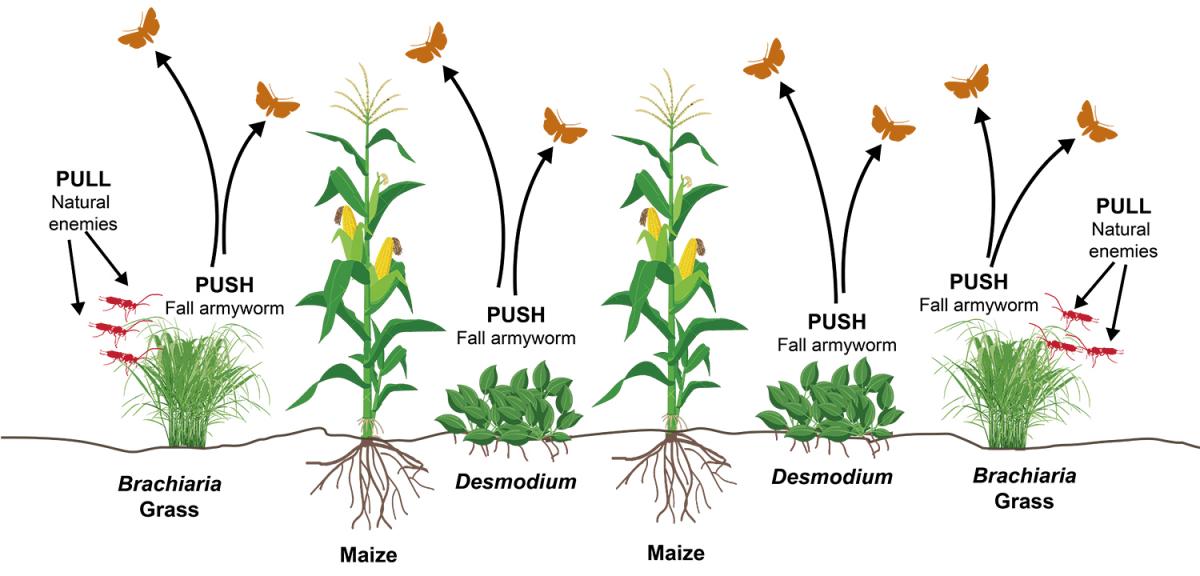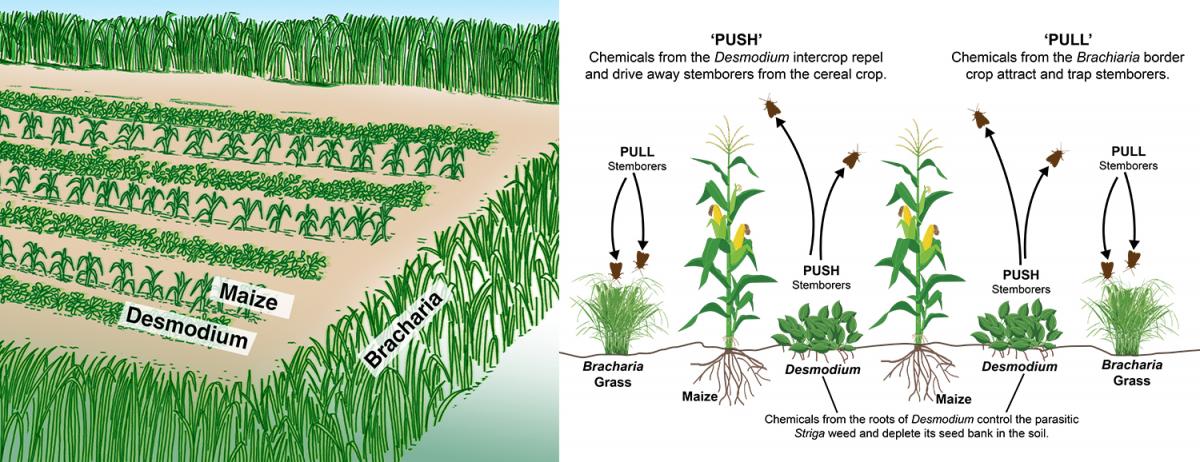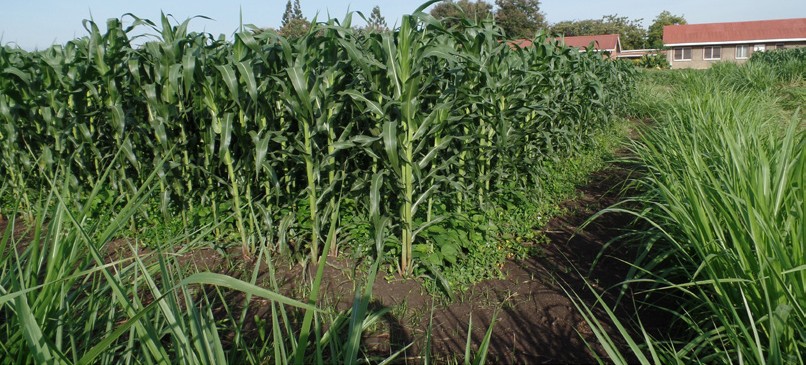
By George Munene
Developed in 2017 by the International Centre of Insect Physiology and Ecology (icipe), push-pull technology, has been shown to reduce infestation by the devastating fall armyworm by 80 per cent.
This is in addition to mitigating the effects of the equally deleterious Stemborer pest and Striga weed.
First confirmed in 2016 in Nigeria, by 2020, the fall armyworm had caused an average annual loss of 36 per cent in maize production alone; and a total economic loss of $200 million, in Africa.
Striga weed causes 20 to 100 per cent crop losses. It infests 40% of the arable land in sub-Saharan Africa, causing an annual crop loss of $7 to 13 billion.
Stem borers are one of the most serious pests of cereal crops in Africa. Two to four bags of maize are lost out of every 10 that could be harvested.
Originally developed for the control of stemborer pests, the push-pull technology involves intercropping cereal crops with plants, for example, legumes such as desmodium.
Related News: Trap cropping: an innovative biological pest control method
Related News: Garlic growing serves as natural repellent to over 10 pests
Desmodium continuously produces defense odours that repel (push) pests like stemborer and fall armyworm from the target food crop.
The legume releases chemical scents that ward off the pest’s moths, preventing them from laying eggs on the cereal crop. Thus, the chances of the pest populations building up are reduced.
Fodder grass, for instance, Brachiaria, is planted as a border crop, and it releases chemicals that attract (pull) and trap the stemborers/fall armyworm.
This leaves the cereal crop protected from pests.

While it majorly serves to ‘pull’, Brachiaria, also functions as a ‘push’ plant that also repels the fall armyworm pests.
Desmodium also suppresses the parasitic Striga weed.
The legume produces two sets of compounds: one that stimulates the germination of Striga seeds and another that inhibits their growth after germination.

Related News: Researchers develop biological Striga pesticide, improves yield 50%
Push-pull also improves soil health as desmodium is an efficient nitrogen-fixing legume.
Additionally, it reduces mycotoxins contamination, a major food safety hazard.
“Even more interesting, we noted that both Desmodium and Brachiaria emit chemicals that attract (pull) natural enemies of the fall armyworm,” says Prof. Toby Bruce of Keele University.
Push-pull technology further helps boost livestock and dairy farming as both Bracharia and Desmodium are high-quality animal fodder plants.
















Comments powered by CComment